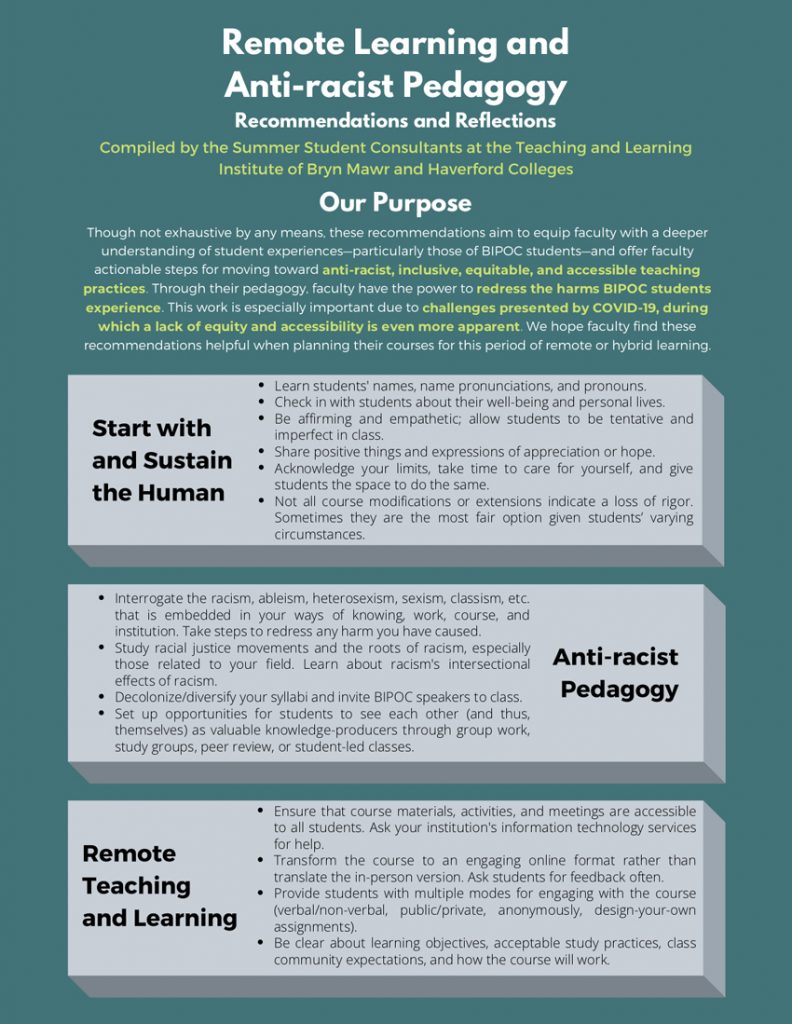LACOL 2020 Virtual Workshop – Summer Dialogues
Student Perspectives on Trauma-informed, Anti-racist,
Remote Teaching and Learning
Resources proliferate on how to prepare for remote teaching and learning that is equitable, inclusive, and anti-racist, but where are students’ perspectives and voices in the mix?
See also: Fall 2020 brown bag series: https://lacol.net/student-led-brown-bags-fall-2020/
In August 2020, Student Partners working in the Summer Pedagogical Partnership Program at Bryn Mawr and Haverford Colleges led a series of semi-structured conversations with faculty and staff across LACOL. Pairs of these students partnered throughout the summer with cohorts of faculty to support their pedagogical planning for the Fall-2020 semester.
As part of this work, the Student Partners read resources and identified what they think matters most in developing trauma-informed, anti-racist, remote teaching and learning. These points shared below served as a basis for the 1-hour small group conversations via Zoom.
“We shared resources and ideas…so I feel like we walked away with tangible strategies and tools to apply to our remote work in a more equitable way.”
“It really made a difference for my course prep, and overall well-being as a faculty member living through these challenging times.”
“The students modeled the kind of non-judgmental openness to questions, concerns, and ideas that they recommended we exhibit in the classroom. I have a long set of notes taken during the meeting that I am eager to implement when I’m next teaching.”
“[This work] opened my eyes to the incredible number of things professors have to consider and worry about when planning a course, which is definitely going to help me consider others’ perspectives in an out-of-the-box way.”
“…talking with faculty partners and student partners has more thoroughly convinced me that a lot of misunderstandings or dissatisfactions among students and faculty could be remedied or clarified by faculty being more direct and transparent about their reasons for adopting certain practices, assignments, and course policies, and by asking students to share their feelings and feedback directly.”
“I have found a voice and a language with which to communicate with faculty and have/facilitate conversations that previously felt out of the realm of things I could do. I think I have learned a lot of important facilitation strategies that I carry with me into other work. I aim to apply this language, knowledge, and skills to other work across disciplines to open space for more accessible and equitable conversations and practices.”
| ▣ Student Resource List (Student-generated and Annotated) | |||
| ▣ Essential Points from the Student Partners | |||
| ▣ Students’ Graphical Summary (PDF) | |||
| ▣ Students Help Professors Develop More Equitable Classrooms |
 Graphic: Maria Bohan
Graphic: Maria Bohan



